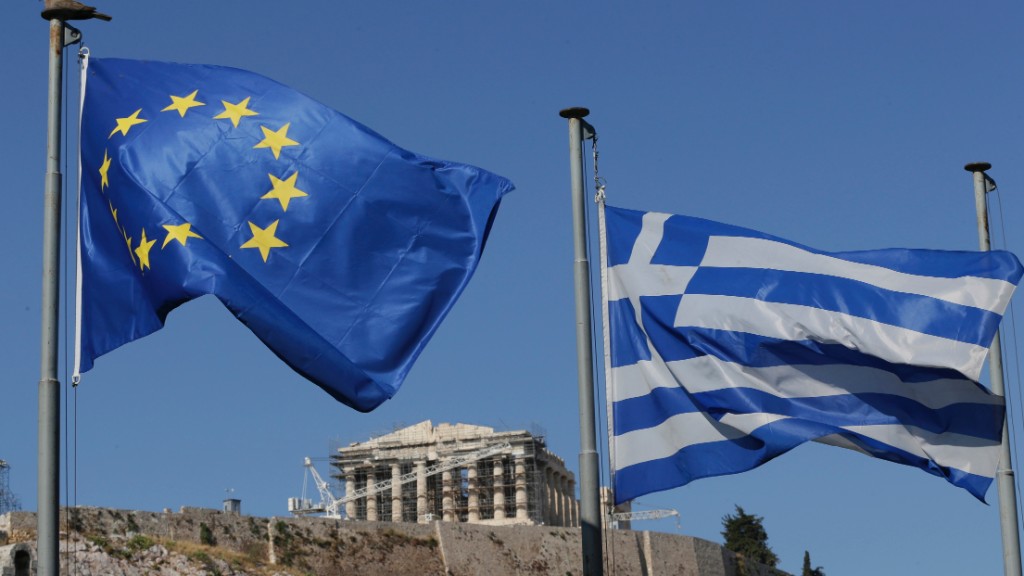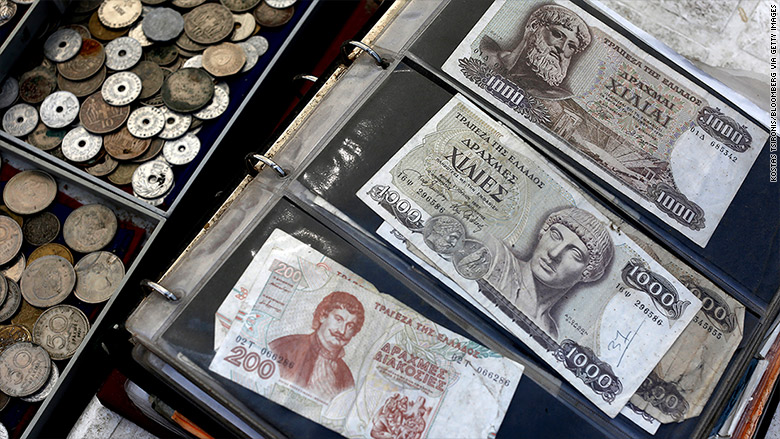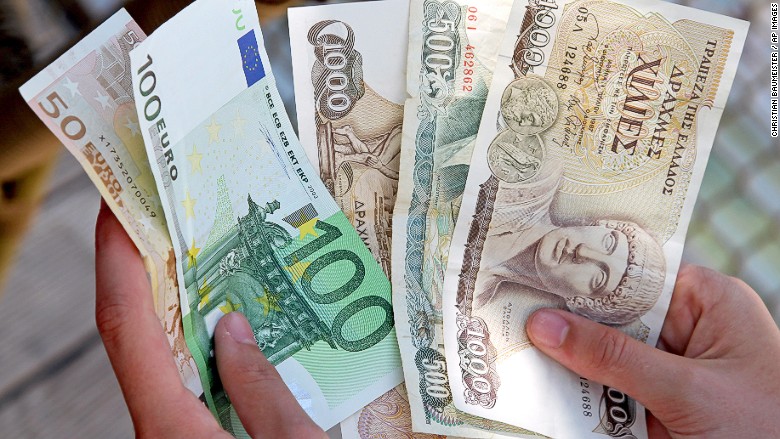
The Greek economy has nearly run out of cash and experts say the country could soon be forced to print its own currency.
Many predict the country will have to re-introduce drachmas, which would see it go back to the old currency it used before switching to the euro.
Here's a step-by-step guide to how this might work:
1. Start printing IOUs
If the government and banks run out of euros, it's possible the government may begin printing IOUs to pay state employees and pensioners.
Wolfango Piccoli, managing director at Teneo Intelligence, predicts that Greece may have to issue around 500 million euros worth of IOUs next week to pay public sector salaries, if Greece is unable to secure more financing from European creditors.
These IOUs could be used as an alternate form of cash, though they wouldn't be as easy to use.
2. Introduce new digital drachmas
The government and banks could work together to convert all bank deposits from euros into drachmas, either overnight or over a set period of time.
Practically speaking, this would mean a person with 100 euros in their bank account on Tuesday could find that they instead have 100 drachmas in their account on Wednesday.
There wouldn't be any physical drachmas available yet, but the money would exist digitally.
The government would set an initial exchange rate, but then individuals and businesses would have to decide the value of the new currency. An immediate, sharp devaluation of the drachma would likely ensue.
"The real value of the so-called new currency will be determined by whether people will be willing to accept it," said Ludek Niedermayer, who previously worked as the head of the risk management department at the Czech central bank when the country introduced its new currency in the early 1990s.
"Definitely, people will prefer to use euros because the new currency, whatever it is, will not be credible," he said.
Jacob Kirkegaard, a senior fellow at the Peterson Institute for International Economics, told CNNMoney that there isn't any historical precedent for this hypothetical Greek currency switch because other countries dissolved their old currency in favor of a new one. But in this case, the euro will stay in circulation.

3. Make the drachma credible
To give drachmas credibility and encourage people to use them, Kirkegaard said Greece could demand that all future taxes be paid in the currency.
On top of that, the government could guarantee the safety of all drachma-denominated bank deposits, but not euro accounts.
But the best way for the government to encourage drachma use would be to commit to responsible economic policies and balanced budgets. Kirkegaard maintains that Greece's government is not inspiring confidence.
4. Print drachma banknotes and coins
If the Greek government resolves to push ahead with its drachma currency, it would eventually have to print banknotes and coins.
The process of designing and printing new banknotes would take at least a year, according to Bernd Kuemmerle, who is head of the banknote business division at German-based Giesecke & Devrient, a leading global banknote producer.
Printing new banknotes requires months of work that involves analyzing how many new banknotes a country will need and designing the new currency. Anti-fraud elements will have to be incorporated into the notes and the physical printing requires many steps, said Kuemmerle.
And it's not cheap.
Kuemmerle said printing 1,000 banknotes costs between €25 to €100 ($27 to $110).
So if Greece wants to print 50 new banknotes per person -- which is the average for a normal economy -- the new notes would cost between €13.8 million to €55 million ($15 million to $60 million). Coin production can become even more expensive that note printing.
5. Distribute drachmas
Once the money has been minted, the Greek central bank would have to distribute the fresh banknotes and coins across the country. Kuemmerle said this is a relatively quick process, but it would have to be done in conjunction with a nationwide educational campaign so the population is kept informed about the currency changes.
Many countries that switched currencies often give a timeline for when they will phase out the old cash. But in this case, Greece will have trouble convincing the population to stop using euros.






